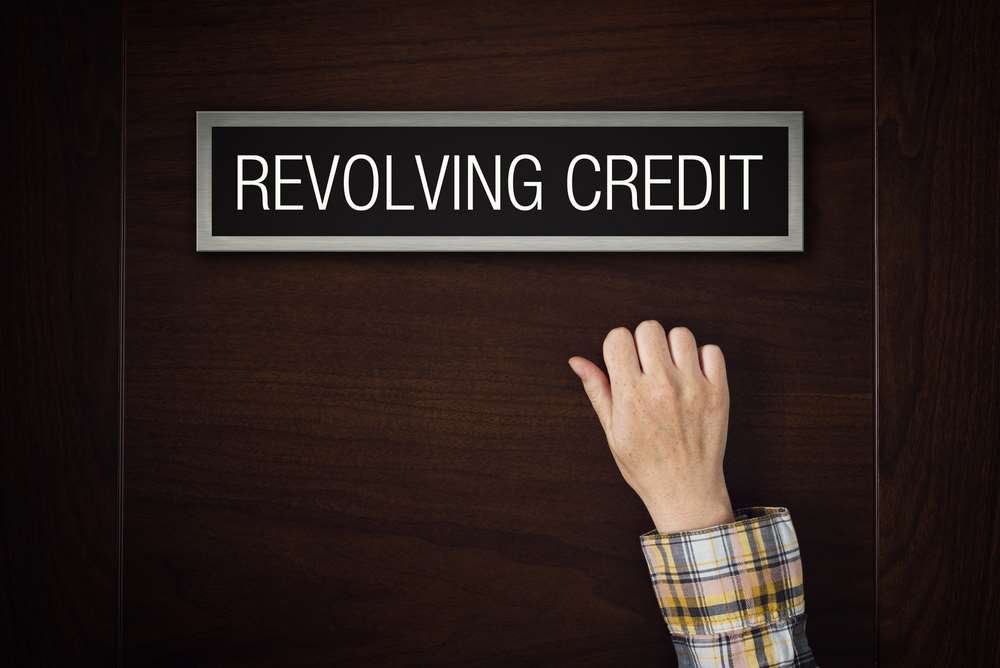Everything You Should Know About Revolving Credit
Published by Gbaf News
Posted on June 1, 2020
6 min readLast updated: January 21, 2026

Published by Gbaf News
Posted on June 1, 2020
6 min readLast updated: January 21, 2026

Did you know that credit cards are a form of revolving credit?
Are you wondering what on earth revolving credit is, in the first place?
Well, it’s a good thing you’re on this page, then, because revolving credit is exactly what we’re going to discuss here.
In simple words, revolving credit refers to the lending facility provided by your bank to you wherein you can use the funds as and when you need as long as you do not exhaust the limit set by your banker.
Here is a summary of the contents of the article.
Let’s get right into the details!
Revolving credit is a type of credit facility provided by financial institutions such as banks in which you can borrow the funds from the bank as and when needed. The maximum amount up to which the amounts can be borrowed is known as the credit limit. The credit is dispersed into your credit account and you can withdraw the funds from this account subject to the defined credit limit.
Unlike traditional installments loans, there are no scheduled repayments to be done in case of revolving credit. In fact, you can repay the amounts to the bank as and when possible and the credit limit gets restored by an amount of repayment done by you which means that your credit limit gets refilled. This is the main feature of revolving credit.
There are two types of costs that you will incur when you avail a revolving credit namely commitment fees and interest charges.
Lenders usually charge a commitment fee at the time of sanctioning the credit limit to you. This fee is charged in addition to interest charges since the lender is responsible for ensuring at all times that the amount as per sanctioned credit limit is available for withdrawal by you. It is a one-time charge that you need to pay to the financial institution and can either be charged as a flat rate or a fixed percentage of the amount of loan that is to be disbursed to you.
Interest is charged as per the agreed interest rates on the outstanding amount of borrowings and not on the sanctioned amount which is the maximum amount that can be withdrawn by you. You need to pay interest on a regular interval (usually monthly) on the outstanding balance of the credit limit. For example, if your sanctioned credit limit is $50,000 and you have not exhausted the entire limit and your outstanding balance of credit is $30,000 then you have to pay interest charges on $30,000 and not $50,000.
You should not miss any chance to save your finances and At CreditKarma you can get to know about low list credit cards and save on interest charges.
There are many forms in which revolving credit can be availed. Some of the most common types of revolving credit that you may opt for are discussed below:
Selecting a good offer for revolving credit may take a lot of research. But if you are looking for free personalized recommendations for the credit card you should choose or the lender from whom you should avail the line of credit you may visit CreditKarma. Their professionals will guide you based on your credit score.
Revolving credit is a diverse lending option and there are different forms that revolving credit can take. Here are some examples of revolving credit.
Whether you are looking for expansion in business or struggling with managing your working capital requirements you can consider the credit facility of revolving credit. It fulfills your short-term financing needs and you can inject the needed amount of money into your business immediately. You need not worry about the repayments as the only regular payments that you will have to pay will be interest charges only on the amount borrowed by you.
You can withdraw the funds whenever required and need not apply for a fresh loan every time you need funds. Revolving credit comes to the rescue for businesses when they are in a short-term liquidity crisis and need an immediate injection of funds.
Lending is a very risky business and that is why lending institutions consider several factors before sanctioning you any amount of revolving credit. Further, the requirements may be different for different types of borrowers.
If you are an individual seeking a revolving credit facility then the financial institutions will normally consider your credit score, employment status, and income details. For a business, the financial institutions examine the financial statements and projections as well before granting any amount of credit.
The credit score is determined by various factors and if you are curious to know your credit score then you can check it for free at CreditKarma. Not only will they provide you your credit score report but they will also provide you suggestions about improving your credit score.
One of the important factors affecting your credit score is credit utilization ratio which is a measure of the proportion of used credit as against total credit granted to you. A higher credit utilization ratio would mean that you are using a greater portion of the credit that has been sanctioned to you and it adversely impacts your credit score. That is why you must only withdraw that portion of funds from your credit account that you necessarily require. Not only this minimizes your interest charges but also improves your credit score.
Conclusion
Revolving credit is a sound option for you if you are looking for short-term financing and need help to meet your regular operating expenses. This is the reason why businesses these days are fascinated by revolving credit as it provides flexibility in terms of borrowings.
Explore more articles in the Finance category
